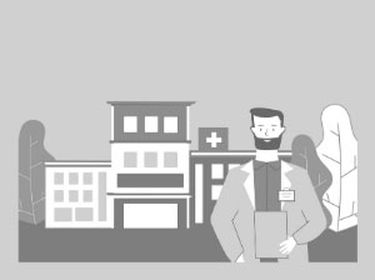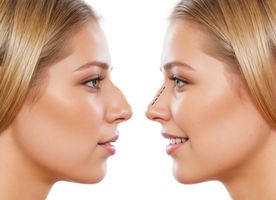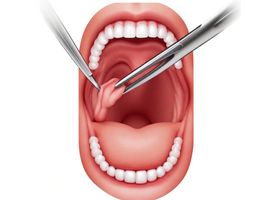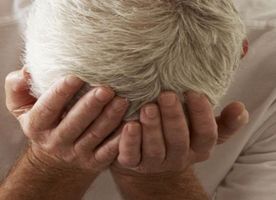ISO Certification - International Organization for Standardization
TÜV Rheinland - Technischer Überwachungsverein Rheinland
ESQH - European Society for Quality in Healthcare
ISQua - The International Society for Quality in Health Care
CHKS Healthcare Accreditation
The Leading Dental Centers of The World
Nobel Biocare Fellowship Program
Zimmer Biomet Dental Education Program
EVF - European Venous Forum
EFQM - European Foundation for Quality Management
IDA - International Dental Academy
ICA - International Chiropractors Association
MCA - McTimoney Chiropractic Association
UCA - United Chiropractic Association
ICS - International College of Surgeons
IACD - International Academy of Cosmetic Dermatology
ISDS - International Society for Dermatologic Surgery
EBOPRAS - European Board of Plastic Reconstructive and Aesthetic Surgery
IAAFA - International Academy of Advanced Facial Aesthetics
WALT - World Association for Laser Therapy
ISHRS - International Society of Hair Restoration Surgery
AAHRS - Asian Association of Hair Restoration Surgeons
ESCAD - European Society for Cosmetic and Aesthetic Dermatology
William Glasser Institute - Reality Therapy Certified
EAC - European Association for Counselling
IFSO - International Federation for the Surgery of Obesity and Metabolic Disorde
TÜV SÜD - Technischer Überwachungsverein SÜD
TÜV NORD - Technischer Überwachungsverein NORD
BIOMET 3i Education Program
EURAPS - European Association of Plastic Surgeons
Center of Excellence in Bariatric Surgery
IAOMS - International Association of Oral and Maxillofacial Surgeons
Treatment Abroad Code of Practice
IFFPSS - International Federation of Facial Plastic Surgery Societies
FIGO - International Federation of Gynecology and Obstetrics
IFED - International Federation of Esthetic Dentistry
EOS - European Orthodontic Society
IBMS - International Board of Medicine and Surgery
EAFPS - European Academy of Facial Plastic Surgery
ESCD - European Society of Cosmetic Dentistry
ESCRS - European Society of Cataract and Refractive Surgeons
NASS - North American Spine Society
ESHRE - European Society of Human Reproduction and Embryology
MPS - Medical Protection Society
European Journal of Ophthalmology
ISRS - International Society of Refractive Surgery
JCRS - Journal of Cataract and Refractive Surgery
JPGM - Journal of Postgraduate Medicine
ESPRAS - European Society of Plastic, Reconstructive and Aesthetic Surgery
OSAPS - Oriental Society of Aesthetic Plastic Surgery
RS - The Rhinoplasty Society
FRANZCOG - Fellow of Royal Australian and New Zealand College of Obstetricians a
IFOMPT - International Federation of Orthopaedic Manipulative Physical Therapist
WFO - World Federation of Orthodontists
ITI - International Team for Implantology
ICOI - International Congress of Oral Implantologists
Dentsply Friadent Implant Programme
IMTEC Sendax Mini Dental Implants Systems
IAO - International Association for Orthodontics
AAO - Asian Academy of Osseointegration
WAAAM - World Anti-Aging Academy of Medicine
WOSIAM - World Society Interdisciplinary Anti-Aging Medicine
ESE - European Society of Endodontology
ECAMS - European College of Aesthetic Medicine and Surgery
IABCLL - International Academy of Body Contouring and Laser Lipolysis
IAFGG - International Association of Facial Growth Guidance
IBCS - International Board of Cosmetic Surgery
IMDHA - International Medical and Dental Hypnotherapy Association
EAO - European Association for Osseointegration
ISD - International Society of Dermatology
IFAD - International Federation of Aesthetic Dentistry
IBHRS - International Board of Hair Restoration Specialists
IAHRS - International Alliance of Hair Restoration Surgeons
EDA - European Dental Association
IASP - International Association for the Study of Pain
ADI - Academy of Dentistry International
EAPD - European Academy of Paediatric Dentistry
EACMD - European Academy of Craniomandibular Disorders
ESHRS - European Society of Hair Restoration Surgery
ICD - International College of Dentists Fellowship
UIME - International Union of Aesthetic Medicine
APACS - Asian Pacific Academy of Cosmetic Surgery
McKenzie Institute International
ITEC - International Therapy Examination Council
ICA - International Cranial Association
I-ACT - International Association for Colon Hydrotherapy
CIBTAC - Confederation of International Beauty Therapy and Cosmetology
IFPA - International Federation of Professional Aromatherapists
ISBI - International Society for Burn Injuries
PEFOTS - Pan European Federation of TCM Societies
URHP - Unified Register of Herbal Practitioners
AACD - Asian Academy of Craniomandibular Disorders
IMSA - The International Medical Spa Association
ACHSI - The Australian Council on Healthcare Standards International
CIDESCO - Comité International d'Esthétique et de Cosmétologie
ART - Active Release Techniques
ICPA - International Chiropractic Pediatric Association
CDA - Caribbean Dermatology Association
APAO - Asia Pacific Academy of Ophthalmology
FICCDE - International College of Continuing Dental Education Fellowship
GMC - General Medical Council
ISA - International Sleep Academy
ISCG - International Society of Cosmetogynecology
EPA - European Prosthodontic Association
ABSI - Advanced Body Sculpting Institute
EACMFS - European Association for Cranio-Maxillo-Facial Surgery
FILACP - Federación Ibero Latinoamericana de Cirugía Plástica
REDLARA - Rede Latino-americana de Reprodução Assistida
ALMER - Asociación Latinoamericana de Medicina Reproductiva
ICP - International College of Prosthodontists
EFP - European Federation of Periodontology
IADR - International Association for Dental Research
IODPT - International Organization for Dental Phobia Treatment
Academy of Operative Dentistry
AAP - Asian Academy of Prosthodontics
AsianAOMS - Asian Association of Oral and Maxillofacial Surgeons
ISCD - International Society of Computerized Dentistry - Certified CEREC Trainer
SAAD - Society for the Advancement of Anaesthesia in Dentistry
PFA - Pierre Fauchard Academy
ISCD - International Society of Computerized Dentistry
YDW - Young Dentists Worldwide
APAD - Asia Pacific Academy of Dentistry
ACDNA - Academy Of Computerized Dentistry Of North America
WSLO - World Society of Lingual Orthodontics
TTB - Turkish Medical Association
TPCD - Turkish Society of Plastic Reconstructive and Aesthetic Surgeons
EPCD - Aesthetic Plastic Surgery Association
TDB - Turkish Dental Association
EDAD - Turkish Academy of Esthetic Dentistry
RMCD - Turkish Society for Reconstructive Microsurgery
TAOMS - Turkish Association of Oral and Maxillofacial Surgery
SDU - Suleyman Demirel University











































































































































